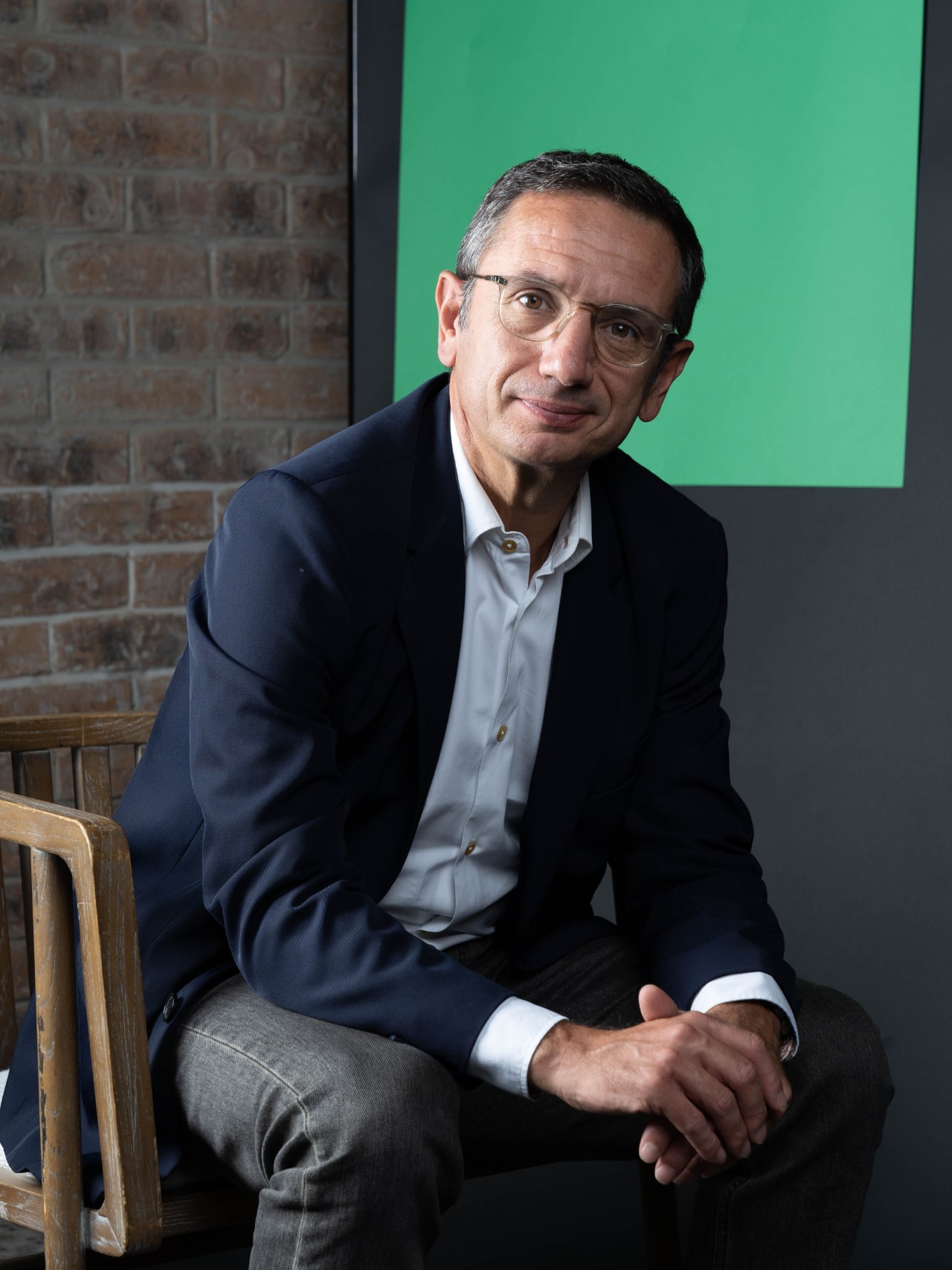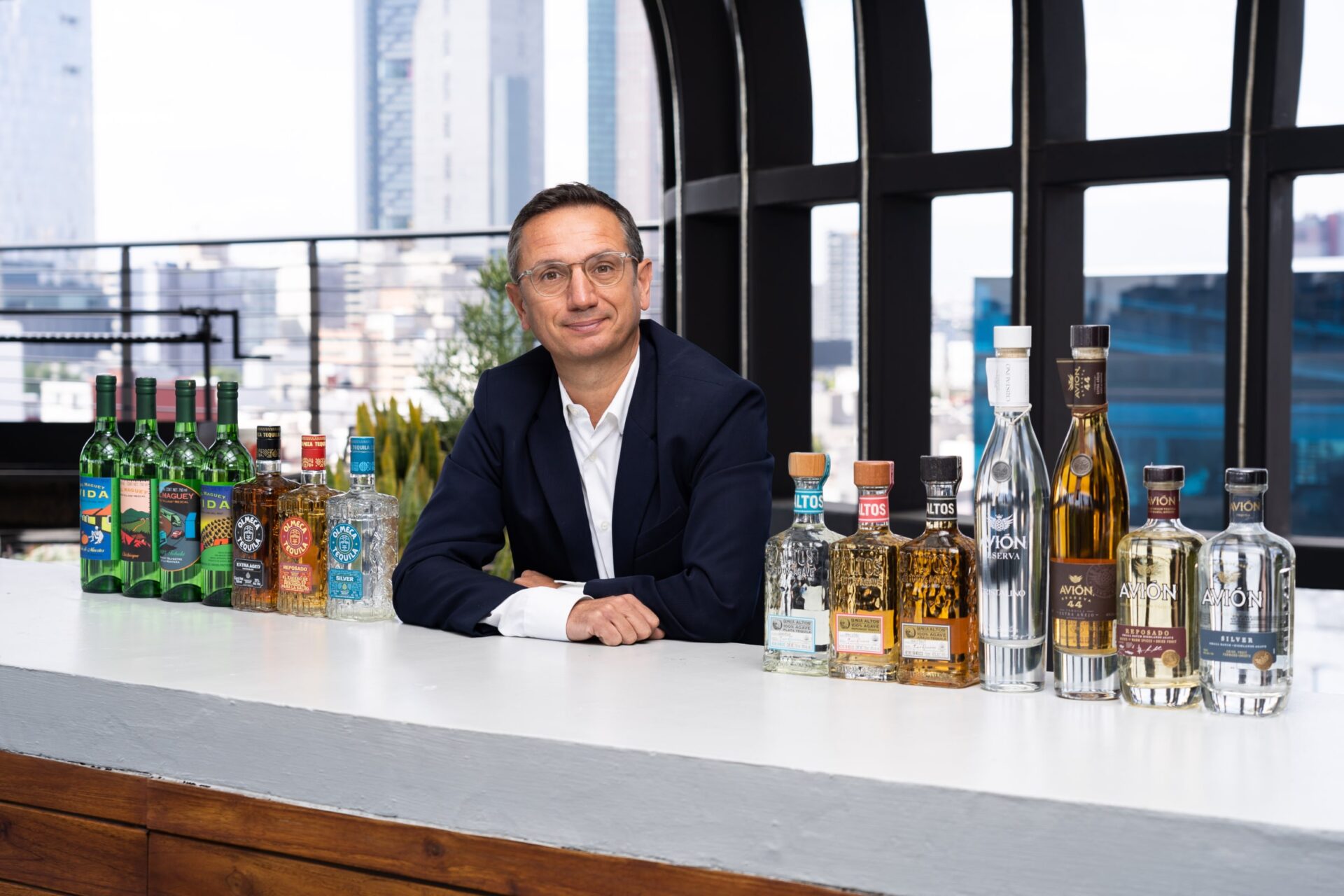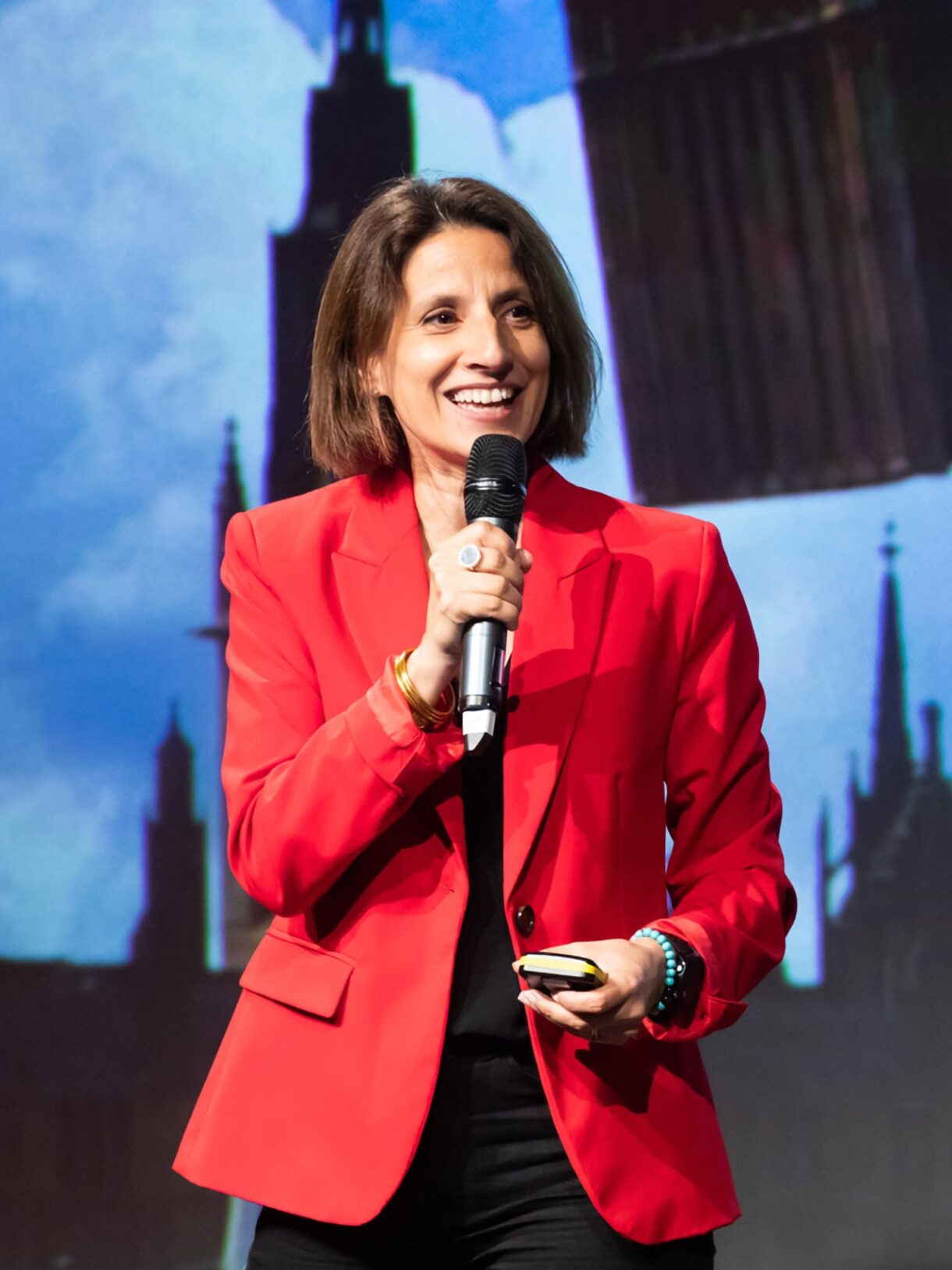“It was the best decision of my life!”
Michael Merolli, CEO House of Tequila, followed his heart by joining the Ricard brand more than 25 years ago, despite a former boss warning him he was making a mistake.

We met with Michael to chat about his 25-year Pernod Ricard career, which has taken him from France to Brazil, Norway and China. Now living in Mexico and tasked with raising the profile of the House of Tequila brands, Michael’s enthusiasm for the company is as strong as ever.
You have been at Pernod Ricard for more than 25 years. What made you join in the first place?
I started my career at Procter & Gamble and at the time it confirmed to me that marketing was the field for me. Growing up in the South of France, I always had dreamt that one day I would work for the Ricard brand based in Marseille. Besides being local, Ricard encapsulated a lot of the life values that resonate with me, and it had an amazing brand image. One day, out of the blue, I received a call from a headhunter suggesting that I apply for a brand manager’s role that had become available at Ricard. I was at the very early stage of my career at the time and Pernod Ricard was not the global group it is today, but instinctively I grabbed the opportunity. My decision was purely emotional and quite risky; there was nothing rational about it. When I told my boss at Procter & Gamble, he said I was crazy and that I was making the worst decision of my life. For me, it turned out to be the best decision of my life! I have been lucky to have spent the past two decades with Pernod Ricard as it has grown and acquired brands, allowing me to grow and develop my career alongside. It was certainly a visionary decision.
My decision was purely emotional and quite risky; there was nothing rational about it.
…and what has made you stay at Pernod Ricard for so long?
I would say the two main reasons why I’m still there after 25 years are development opportunity (as mentioned above) and of course conviviality. What makes Pernod Ricard special is everyone who works here. People working at Pernod Ricard are passionate; super-engaged; welcoming; curious; and open-minded. I like to meet people, and this is shared by everyone at Pernod Ricard. In the early days, Paul Ricard’s motto was “make a new friend every day”. Of course, that is quite a challenge as it takes time to make friends, but I love this value and it is why my Pernod Ricard journey has been such an exciting one.
What has been the defining moment of your career?
Unlike when I joined, Pernod Ricard is today a truly international company and I always wanted to work in an international environment. I have been extremely fortunate to live out that dream. In 2003, at 33, I was offered the position of marketing director in Brazil. It was an unbelievably exciting first international assignment and an incredible experience. It opened my mind. Living abroad and being able to adapt to such arich and diverse culture like Brazil was amazing. I was looking after all the Group’s brands, including a strong portfolio of local/regional brands which allowed me to travel across the country. I was very happy there, while our first daughter was born there. But, due to an exciting new appointment proposal (Marketing Director of Ricard SA in Marseille), I stayed for a shorter period than I would have liked. Still, Brazil has a very special place in my heart.
People working at Pernod Ricard are passionate; super-engaged; welcoming; curious; and open-minded.
How would you describe your management style – and have you had to adapt depending on region?
Energetic! My leadership style is driven by emotion with a “let’s go and win this battle” mentality. I have learned that you may have to adapt the way you manage because not only does each region vary in size, but they also embrace different cultures and ways of working.
After Brazil and following my next assignment as Marketing Director of Ricard SA in Marseille/France, I took up the managing director position in Norway. It’s a beautiful country where the nature and the quality of life are amazing. But for someone from the South of France, it was a cultural shock. I soon discovered that I needed to adapt my management style to find the right wayto motivate my teams to get the best results. It was a fruitful experience from which I learned a great deal.
My leadership style is driven by emotion with a “let’s go and win this battle” mentality.
Then I spent four years in China, which is a far bigger market (my marketing team was 100-strong), far more distant from Europe than Norway, and the business culture was the opposite and surprisingly closer to my “Latin” roots. My team was super engaged, enthusiastic and passionate about growing and developing new initiatives. The pace was unbelievable – everything moves so fast because of a very advanced digital ecosystemsuch as the WeChatplatform. Seemingly every week, WeChat would have new functionalities and fresh opportunities to deliver messages in a more efficient and targeted way. In China, on digital but as well on any business topic, you must adapt every day to be ready to seize the opportunities. I had an outstanding team behind me, also helping with the language and very specific local insights as I didn’t speak Chinese!

What was your knowledge of tequila before you took up the House of Tequila CEO role?
I hadn’t worked specificallywith tequila before moving to Mexico. Like many people in the world, I had a very clichéd image of tequila being a shot spirit for high energy. So, I needed to understand why tequila was getting so much traction in the US and Mexican markets with a much more sophisticated perception than this caricatural image. However, in the summer of 2020, when I first arrived in Mexico City to take up my House of Tequila role, it was during Covid time; I was working from home with all my family around. My daughters, 14 and 16 at that time, have spent their first full school year online without knowing anyone in Mexico. It’s fair to say that I wasn’t in their good books! The good thing was that our Tequila distillery remained open during the pandemic, and I took advantage of that to visit as often as I could to learn about tequila’s process and related secrets. I discovered that the richness of the agave plant is amazing (not just the blue Weber agave for tequila but also the numerous other (wild) varieties usedfor mezcal) and that it takes seven years to grow blue agave to make quality tequila. I joke that it is a very sophisticated production operation for a ‘white’ spirit (not forgetting that we also have aged/brown tequilas in our portfolio) that people will normally associate with more simple processes.
What are your main objectives in your House of Tequila role?
People know a lot about the quality and sophistication of tequila in the US and Mexico, its native land. But in other parts of the world, it is still often perceived as a party shot and a high-energy drink. The reality is that tequila is far more sophisticated than many people think; it is a high-quality product that can also be drunk neat, on the rocks or mixed in long drinks or more fancycocktails, starting with the Margarita, the number one spirit cocktail in the US. This is the message we are working on, and we have amazing Tequila brands to promote this approach (Altos, Codigo, Olmeca, Avion on Tequilas and Del Maguey and Ojo de Tigre on Mezcals). We also have some great ambassadors around the world delivering this message and we are already seeing the perception change in some parts of Europe (especially in the UK), Canada and Australia with some encouraging signs in Asia. It is a very exciting time for the agave categories– our brands are growing fast – there is a global cocktail boom while Mexico is on trend with its creative gastronomy famous for more than just tacos! The House of Tequila, through its amazing portfolio of brands, has a very important role to play. This is one of my key objectives – for the world to understand what quality tequila and mezcal are.
Like many people in the world, I had a very clichéd image of tequila being a shot spirit for high energy.
What is House of Tequila’s view on sustainability?
House of Tequila wants to lead the way on sustainability within the tequila industry. We are already involved in concrete activities to develop best practices in terms of sustainability.
For example, one is around terroir and the way we grow our agave and the way we look after the land and embrace reforestation. It’s something we are working on actively. We are also working on collective creative projects. We have a powerful initiative called the Tahona Society, which has been created for bartenders. It revolves around a contest where bartenders present sustainability initiatives that benefit staff, customers, the bartending community and the environment. The winner is given US$50,000 to bring the idea to life, while we also help with coaching and advice to support the project further.
Meanwhile, Mezcal is produced by small local villages and communities and there is a lot of care and attention on how we can give back to the people who are producing this beautiful liquid. The Mezcal category has been growing very fast globally. Together with the other players in this category, we are working actively to ensure we are building a sustainable category. With the leading international Mezcal brand in Del Maguey, we have a responsibility to be leading the way.
The reality is that tequila is far more sophisticated than many people think.
Do you have a role model?
I have been lucky to work with many inspirational colleagues – too many to name them all.
But the role model of my life is without any doubt my grandfather who was involved in the French resistance during the Second World War. He was only 17 when he was captured by the Gestapo and sent to a Nazi camp. He survived the war and had a good professional career, but he also spent his whole life telling his story to younger generations so that no one could forget. He passed away some years ago. His resilience and capacity to fight for his values are still truly inspiring to me. He proudly inspires me every day.
You seem very busy. How do you how do you switch off or relax?
It’s very important for me to just step back to keep a healthy balance in my life. I am very curious by nature, and I have many cultural passions, especially contemporary art that I discovered through the Ricard Foundation many years ago. But sport is probably my best recipe for switching off. I love downhill skiing even if it is sometimes a bit challenging when you live far away from the mountains. Expatriation is an interesting way to explore new activities: in Brazil, I learned to surf, in Norway, I learned to cross-country ski and when I was in China, I used to regularly run in the crowded streets of Shanghai at 7am.In Mexico, I have discovered a new sport, the Padel. I started from scratch, but I am now playing almostevery week. I love this sport and find it a great way to disconnect but also to connect with new people and make new friends.
